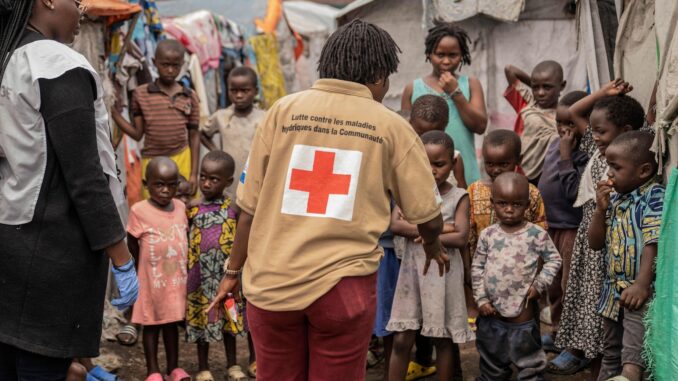
GENEVA — The U.N. health agency on Monday launched a six-month plan to help stanch outbreaks of mpox transmission, including ramping up staffing in affected countries and boosting surveillance, prevention and response strategies.
The World Health Organization said it expects the plan from September through February next year will require $135 million in funding and aims to improve fair access to vaccines, notably in African countries hardest hit by the outbreak.
“The mpox outbreaks in the Democratic Republic of the Congo and neighboring countries can be controlled, and can be stopped,” said WHO Director-General Tedros Adhanom Ghebreyesus in a statement.
The agency is “significantly scaling up staff” in affected countries, it said. In mid-August, WHO classified the current mpox outbreak as a global health emergency.
Also Monday, German government spokesperson Steffen Hebestreit said Germany is donating 100,000 doses of mpox vaccine to affected countries from stocks held by its military, German news agency dpa reported.
Last Tuesday, Congo — the hardest-hit country — reported more than 1,000 new mpox cases over the previous week.
In its latest update on the outbreak, the African Centers for Disease Control reported that as of Thursday, more than 21,300 suspected or confirmed cases and 590 deaths have been reported this year in 12 African countries.
Mpox belongs to the same family of viruses as smallpox but typically causes milder symptoms like fever, chills and body aches. It mostly spreads through close skin-to-skin contact, including sexual intercourse. People with more serious cases can develop lesions on the face, hands, chest and genitals.


Be the first to comment